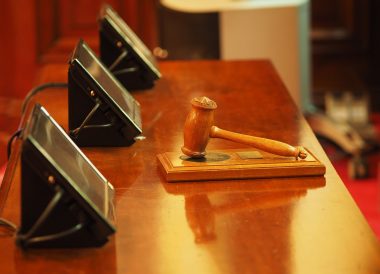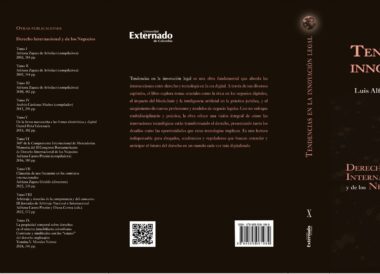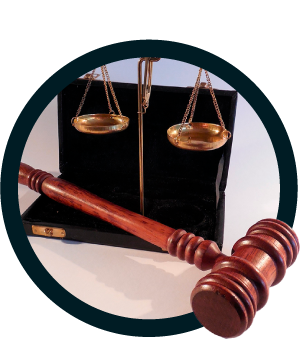30 de abril de 2018
Why is Big Data so important for the evidence in the judicial and arbitral proceedings?
The facts are fundamental to the law. Proof of the facts is decisive for success or failure in a process. Whoever does not prove the facts has in his hands the possibility of determining the truth.
The Big Data as data analytics is the result of the datafication of the world. The data and its analysis are replacing theories. The theories about the facts constitute the daily work of millions of lawyers around the world who confer theories on how to interpret the facts or how to weaken the interpretation that other lawyers have about the same facts.
The evidence is separated from the evidence, which is why there are various means of proof so that, by interpreting it, we can get as close as possible to the truth.
For example, the location or the site in which certain events occurred is subject to interpretation that depends on the spatial situation of the persons or things related to the facts.
In the case of Big Data, an analysis based on prospective, that is, in the construction of future scenarios allows to establish the following:
1. Verifiable and accurate facts about the facts become the rule and not the exception.
2. Lawyers will increasingly have less space to interpret the facts as these are objective and verifiable.
3. With the Internet of Things, objects become the main source of evidence without requiring rhetorical argument about circumstances of time, manner and place.
4. Causality, and in general, speculation about the relationship between cause and effect can be replaced by precise information about the precise consequences of a given act or behavior.
5. The probability as a factor of calculations of possibilities regarding the occurrence or not of a certain fact can be replaced by a scientific analysis of the information from diverse sources that in principle can be apparently contradictory.
6. The full information about the facts can weaken the capacity of interpretation of the law with respect to the world as such.
7. The geolocation eliminates the discussion about the geography of people and goods.
8. The idea of limiting the facts of a procedure to relevant facts can be replaced in the Big Data era because all the related facts are relevant
9. The correlation between the facts should be enough criterion to determine the procedural truth.
10. The power of big data in the legal field will be even more noticeable if it joins the advances of Artificial Intelligence and machine learning
Artículos Recientes
¡Ya está disponible el caso! Segunda versión del Concurso Laboratorio de Estrategia Legal #LSL
Invitamos a los estudiantes de pregrado y postgrado de todas las carreras a presentar [...]
Masterclass Legal Operations: Transformando la Función Legal Empresarial de Guardián de Riesgos a Creador de Valor.
El Departamento de Derecho de los Negocios y la Facultad de Administración de Empresas [...]
Conclusión del Proceso de Reforma al Investor-State Dispute Settlement
En la semana del 12 de julio de 2023, durante la sesión anual de [...]
El Departamento de Derecho de los Negocios de la Universidad Externado de Colombia abre convocatoria para la vacante de Asistente de Investigación
¡Sé parte de nuestro equipo de trabajo! Perfil del cargo: Asistente de Investigación Apoyar [...]
Docente del Departamento de Derecho de los Negocios participó en el libro Blanco de la Asociación de Derecho Internacional
La Asociación de Derecho Internacional (ADI), una de la organizaciones más antiguas y prestigiosas [...]
CRYPTO IN COLOMBIA: PROSPECTIVE 2022
By: Daniel Peña Valenzuela The volatility of the main cryptocurrencies seems to be once [...]
Convocatoria de Monitores.
El Departamento de Derecho de los Negocios se complace en anunciar la apertura para [...]
¿Se avecina una regulación de la Franquicia por parte del Gobierno? ¿O lo impedirá la Corte Constitucional?
Por: Juan Miguel Álvarez* y Diana Marcela Araujo* En diciembre del 2020, el congreso [...]
Operaciones Legales como orquestador del Modelo de Función Legal para la transformación de departamentos jurídicos
Palabras Clave: Operaciones Legales, Estrategia, Departamentos Jurídicos, Transformación, Modelo de Función Legal. La dinámica [...]
Grabación masterclass: Blockchain e Inteligencia Artificial: El Futuro de la Resolución de Disputas
GRABACIÓN DE LA MASTERCLASS La evolución tecnológica está redefiniendo el panorama legal a un [...]
Determinando el Futuro del Derecho: “Tendencias en la Innovación Legal”
La transformación digital está redefiniendo el ejercicio del derecho, exigiendo a los abogados una [...]
Solución a Controversias Comerciales vía Mediación: Algunas reflexiones en torno a la convención de Singapur
El pasado 12 de marzo de 2025, se realizó el Foro de Solución a [...]


















